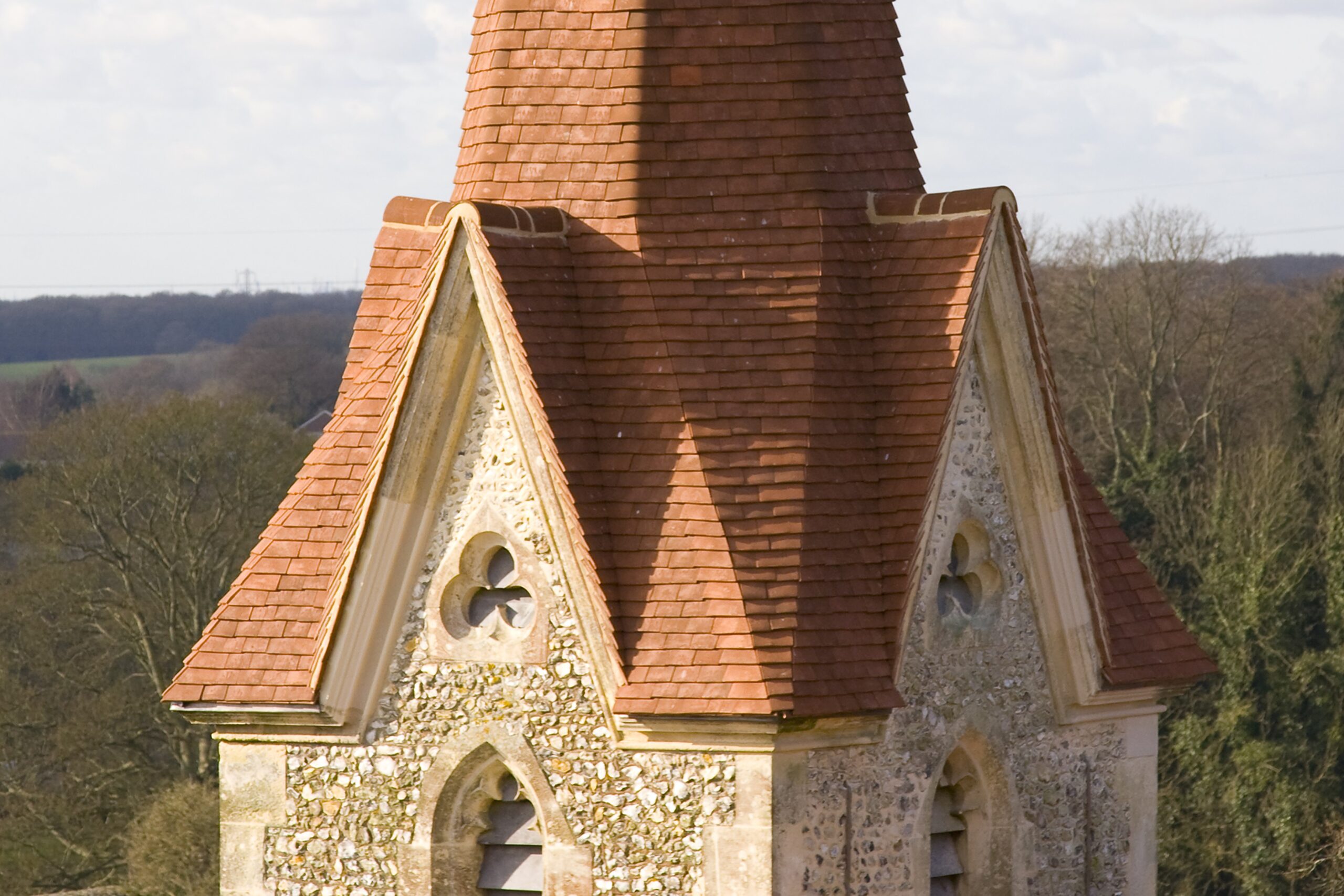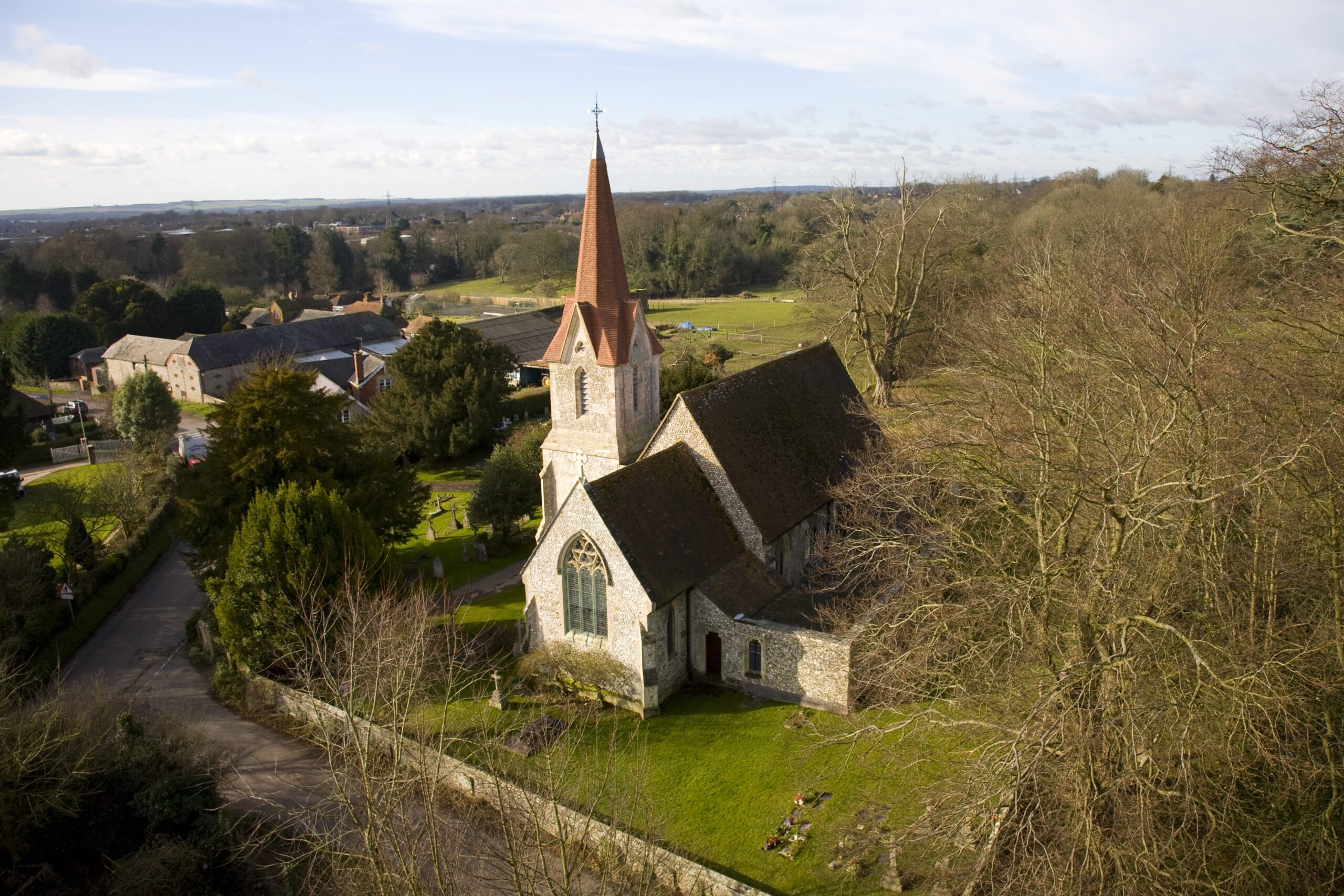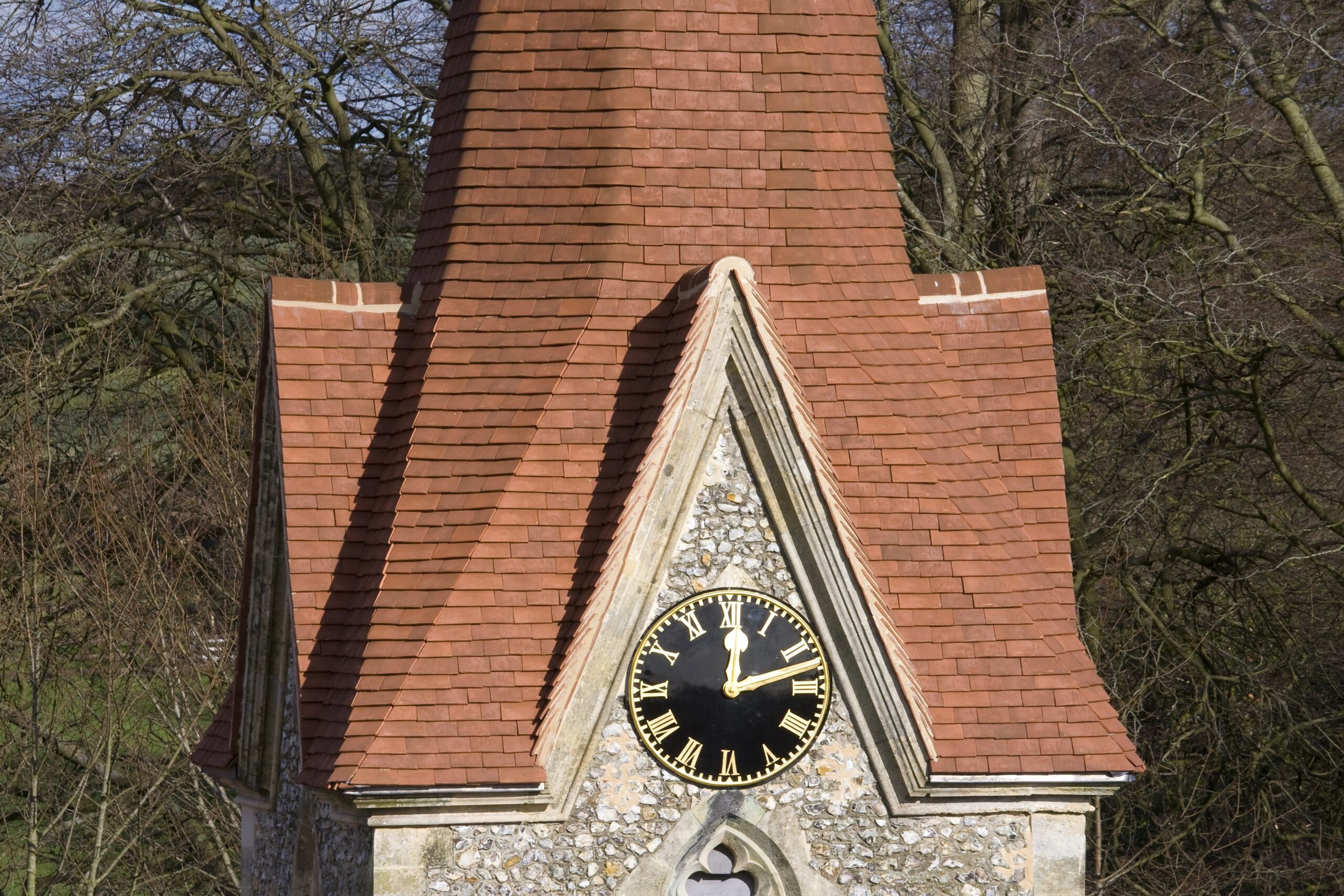Case study
Holy Trinity Church
Hampshire
Hampshire

Holy Trinity Church in Hampshire was built in 1852 in an English Gothic style to the design of Ecclesiastical Architects, Edward and William Habershon.
The church has an unusual clay plain tiled broach spire with lucarnes – small gables to the four sides. Failure of the fixings meant the spire had to be retiled in 1927. Unfortunately, various elements were poorly executed and the hips were inappropriately formed using small bonnets, resulting in virtually no side lap. This resulted in long-term water penetration and the rotting of structural timbers and battens – the tiles were only still in place thanks to their full mortar bedding.
The timber structure had to be repaired and the spire retiled. Due to the complex shape of the spire, this required careful craftsmanship. As the church is listed and located in a conservation area, it was also essential that the character of the spire was maintained by using handmade clay tiling of the same colour as the original roof.


Our Goxhill handmade plain tile in Autumn Brown was selected for the project as the colour and style proved an ideal match to the original tiles dating back to the thirties. This tile was also chosen because it was able to produce the unique large and small hip tiles required to tightly lace with the plain tiling. A cantilever scaffold was erected to protect the roofs below from falling tiles and enable the architects to identify the best design strategy. Measurements were taken and mock ups were produced by our technical team to help achieve the most appropriate shapes for the hip tiles.
The spire is in an exposed position, so to prevent the risk of ‘chatter’, the tiles were spot bedded on lime mortar. Every tile was double fixed to tiling battens using copper nails fixed on a high-performance breathable membrane. Hips were secured at least twice with stainless steel screws and washers. As the timber structure had distorted over the years, the tiles were individually double cut to fit. Skyline Roofing (Kingston) resourced the project with experienced roofers that could meet this standard.
To help raise funds for the refurbishment, we also arranged for 100 of its Goxhill handmade clay roof tiles to be individually inscribed with the names of parishioners who then purchased these tiles to raise money for the refurbishment.
The complexity of the project has attracted interest from the Society for the Protection of Ancient Buildings (SPAB). They sent a group of young architects, building surveyors and structural engineers to visit the church as part of their fieldwork on practical building conservation. The group also visited our Sandtoft factory to see the bonnets being made.
““The re-roofing of the spire of this pretty church, in a quintessentially English conservation area, is a beautiful and inspiring project This project was not a massive scheme, but entailed some tricky detailing, notably because it is a broach spire with steep gables, and called for a close working relationship between Keymer, the architect and roofing contractor. The work also had a lovely finishing touch – church vicar, the Rev Rosemary Donald, laid her own specially crafted tile to mark the end of the repairs.””
Andrew McRae, Secretary of the Clay Roof Tile Council


Service: Contemporary